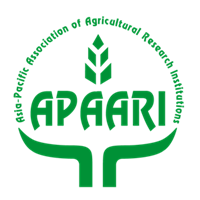Lessons learned and ways forward on CGIAR capacity development: A discussion paper
This paper is a contribution to the establishment of a new capacity development (CD) 9 strategy, a process that the Consortium Office will facilitate, with external input, during 2013. The paper explores the lessons learned from CGIAR’s experience with CD and reflects the findings of a working group that was brought together in late 2012. The objective of the paper is to identify the roles that individual and institutional CD might play in CGIAR in order to increase CGIAR’s impact on the welfare of smallholder farmers and the sustainability of their farming systems. A number of case studies have been included; these indicate the need for a more comprehensive approach to documenting the lessons learned to date. The paper also discusses possible interventions by the Consortium to ensure that CD contributes positively to achieving development outcomes through the CGIAR Research Programs. While the paper gives only partial answers, the authors have found it to be an important opportunity to learn and start to re-engage as a CD community.
Related Resources
Innovation Systems Perspectives on Developing-Country Agriculture : A Critical Review
Early applications of the innovation systems framework to developing-country agriculture suggest opportunities for more intensive and extensive analysis. There is ample scope for empirical studies to make greater use of the theoretical content available in the literature, and to employ...

Report on Prioritization of Demand-driven Agricultural Research for Development in Bangladesh
The International Food Policy Research Institute (IFPRI) partnered with the Asia-Pacific Association of Agricultural Research Institutions (APAARI) in 2011 to conduct a series of policy dialogues on the prioritization of demand-driven agricultural research for development in South Asia. Dialogues were conducted with...
Bringing the invisible into perspective
This reference document describes a comprehensive approach for planning, monitoring and evaluation of capacity and the results of capacity development processes. This capacity framework used centres around 5 capabilities (‘5Cs’) that together contribute to an organisation’s ability to create social...
Evaluating Capacity Development: Experiences from Research and Development Organizations around the World
The international aid community is placing a growing emphasis on developing local capacity as the key to alleviating poverty and hunger in the developing world. Although ensuring the effectiveness of a capacity-building effort requires appropriate use of evaluation, few organizations...
Global Value Chains Meet Innovation Systems: Are there Learning Opportunities for Developing Countries?
Analysis of the role of Global Value Chains (GVC) in accessing knowledge and enhancing learning and innovation. Global Value Chains, Innovation Systems, Governance, Foreign Direct Investment, Learning, Upgrading, Productivity. Three main conclusions emerge from the analytical framework and evidence presented...


